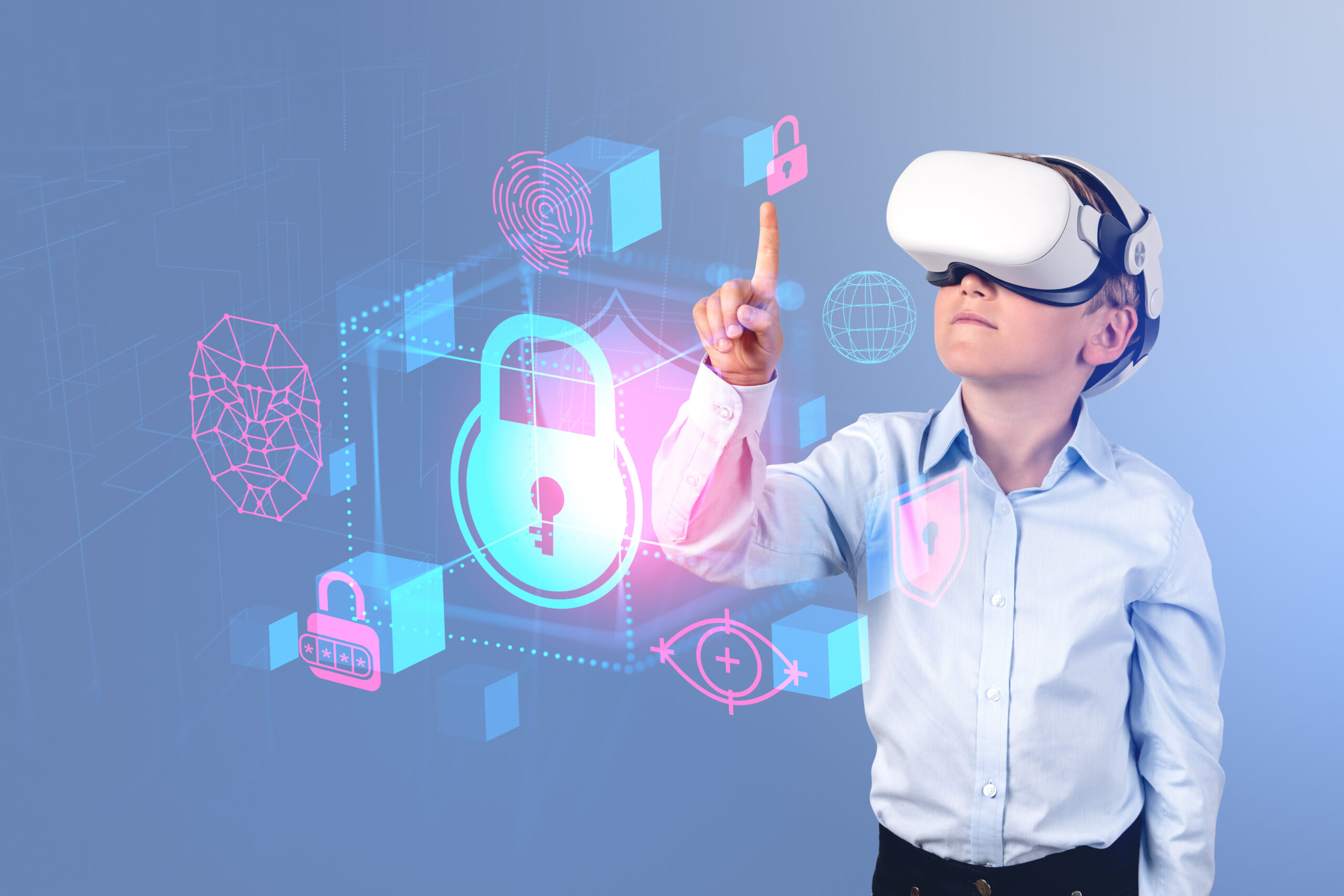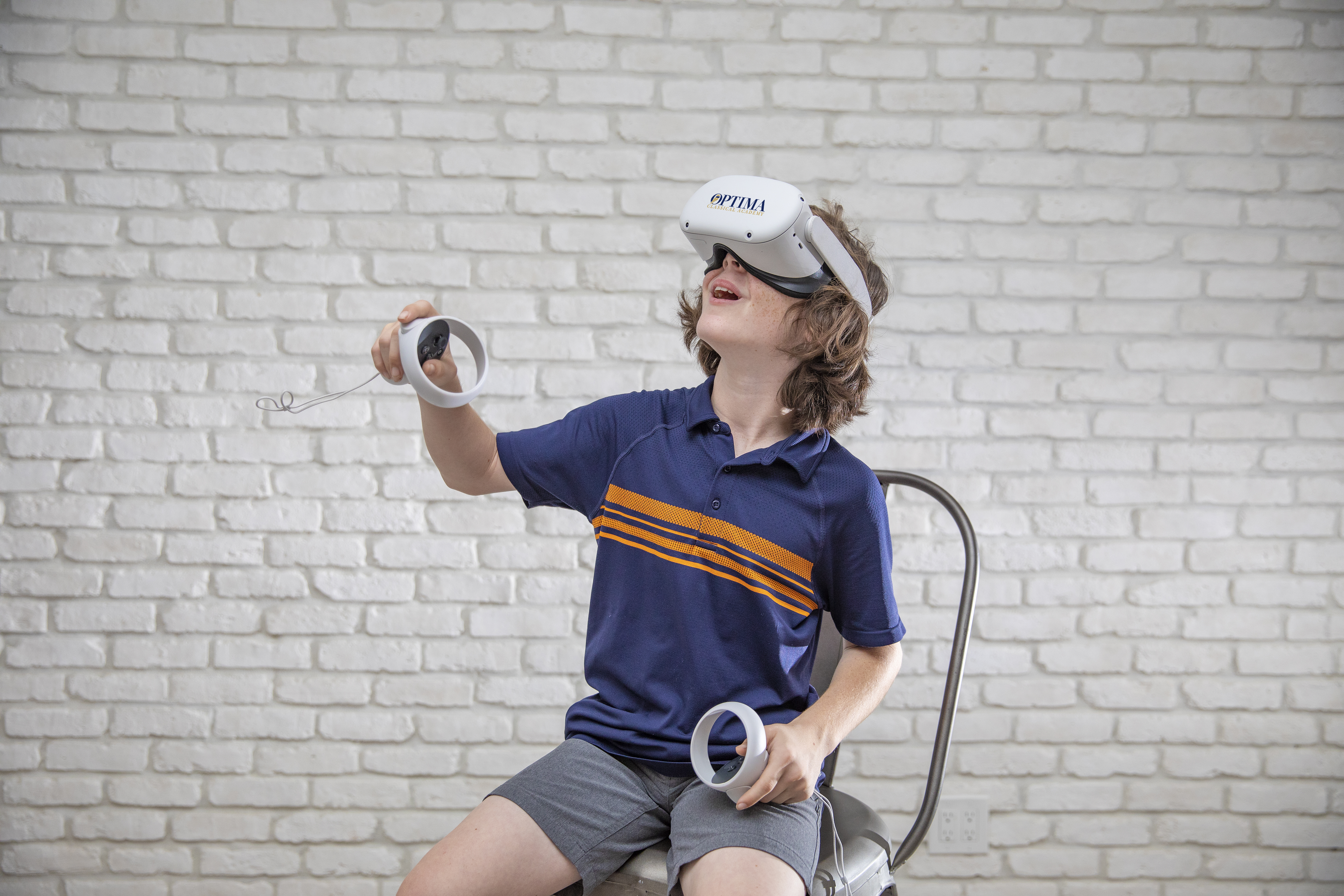VR in K-12 Education Research

Optima Academy Online is anchored in scholarly research that affirms Virtual Reality (VR) Learning as beneficial to K-12 education. Our platform is designed to foster a collaborative, inquiry-based learning environment where students can actively engage with content, develop critical thinking skills, and cultivate a lifelong passion for learning.
Our extensive library of VR educational content allows students to embark on immersive journeys that spark curiosity and inspire exploration. Our hands-on experiences provide students with the opportunity to apply their knowledge and skills in real-world scenarios.
Continue reading to discover how VR enhances student learning by priming interest, increasing engagement, and improving long-term retention.
The Positive Impact of VR on Student Engagement & Achievement
Benefits of taking a virtual field trip in immersive virtual reality
VR can cause students to become more interested in course material, leading to higher levels of engagement and better performance on long-term assessments of learning. Virtual reality can be used to prime student interest and attention levels leading to increased engagement with learning materials.
The virtual reality advantage
What takes two hours to learn in a traditional classroom lesson can be learned in only 30 minutes using VR. When accounting for extra time needed for first-time learners to be fitted for and taught to use the headset, VR learners still understood course material three times faster than classroom learners.
Effects of a VR-based approach on students’ creativity & engagement
Students learning with a VR-based approach had higher cognitive engagement than students taught with a paper-and-pencil or hands-on approach. The VR-based approach also improved students’ behavioral, emotional and social engagement compared to the paper-and-pencil approach.
Impact of virtual reality on the teaching and learning of vectors
Over 90% of students in an introductory physics course said VR helped them learn and understand 3-D vectors, visualize mathematical problems involving vectors, and understand the location and meaning of angles between vectors. They also said time dedicated to VR sessions were valuable for learning.
Virtual reality and gamification in education
Due to the immersiveness and interactivity that virtual reality offers, it can lead to increased learning outcomes when compared to instructor led teaching.
The potential of virtual reality to teach history in Primary Education
Virtual Reality (VR) can increase student engagement levels. Student engagement and higher-level competence development were found to have a positive and causal relationship.
Download Our Research Guide
This comprehensive guide offers a valuable resource for parents seeking to integrate virtual reality (VR) into their child’s educational journey. It delves into research demonstrating the positive impact of VR on student outcomes, explores emerging trends in immersive technology, and provides resources for further exploration.
Additionally, parents can benefit from firsthand accounts of peers who have successfully incorporated VR into their children’s learning experiences across various grade levels.
More in VR & Education Research
Arizona State University
ASU Sees Biology Grades, Student Ratings Improve With VR
Penn State
VR can change students’ perceptions, behaviors, attitudes and empathy levels, all critical for enhancing intercultural competence.
NSU Florida
Meta, The Metaverse and Experiential Education. Learn about how Virtual Reality is enhancing education.
NSU Florida
Is Teaching in the Metaverse That Far Off? Lessons Learned from a Higher Education Case – The Qualitative Report 2023
PwC
VR learners were 150% less distracted and 40% more confident in applying what they were taught compared to their counterparts in traditional classrooms.
The Journal of Interactive Learning Environments
Students learning with a VR-based approach were more creative and had higher cognitive engagement than students learning with a pencil-and-paper or hands-on approach.
Educational Psychology Review
Virtual Reality (VR) can cause students to become more interested in course material, leading to higher levels of engagement and better performance on long-term assessments of learning.
MASIE Report
National Training Laboratory study found that while lectures and reading produce 5% to 10% learning retention rates, a virtual reality experience can result in 75% retention — second only to learning by teaching someone else.
Miami Children's Health System
Students who learned using virtual reality were able to retain nearly 80% of what they learned when tested after one year, whereas students who trained using traditional methods retained only 20% a week after being tested.
Explore Our Case Study on VR’s Impact on Student Learning

We completed a six-week study with 22 sixth Graders. Initial focus interviews revealed low levels of prior knowledge related to the targeted Earth Science concepts, and all students achieved proficiency for all standards during the intervention.
-
Students reported a preference for VR instruction.
-
Increased level of student engagement with content.
-
Students’ interests can be primed with VR learning.
-
VR can cause students to become more interested in the material, which leads to higher levels of engagement and learning gains that are manifested in better performance on long-term assessments of learning.
